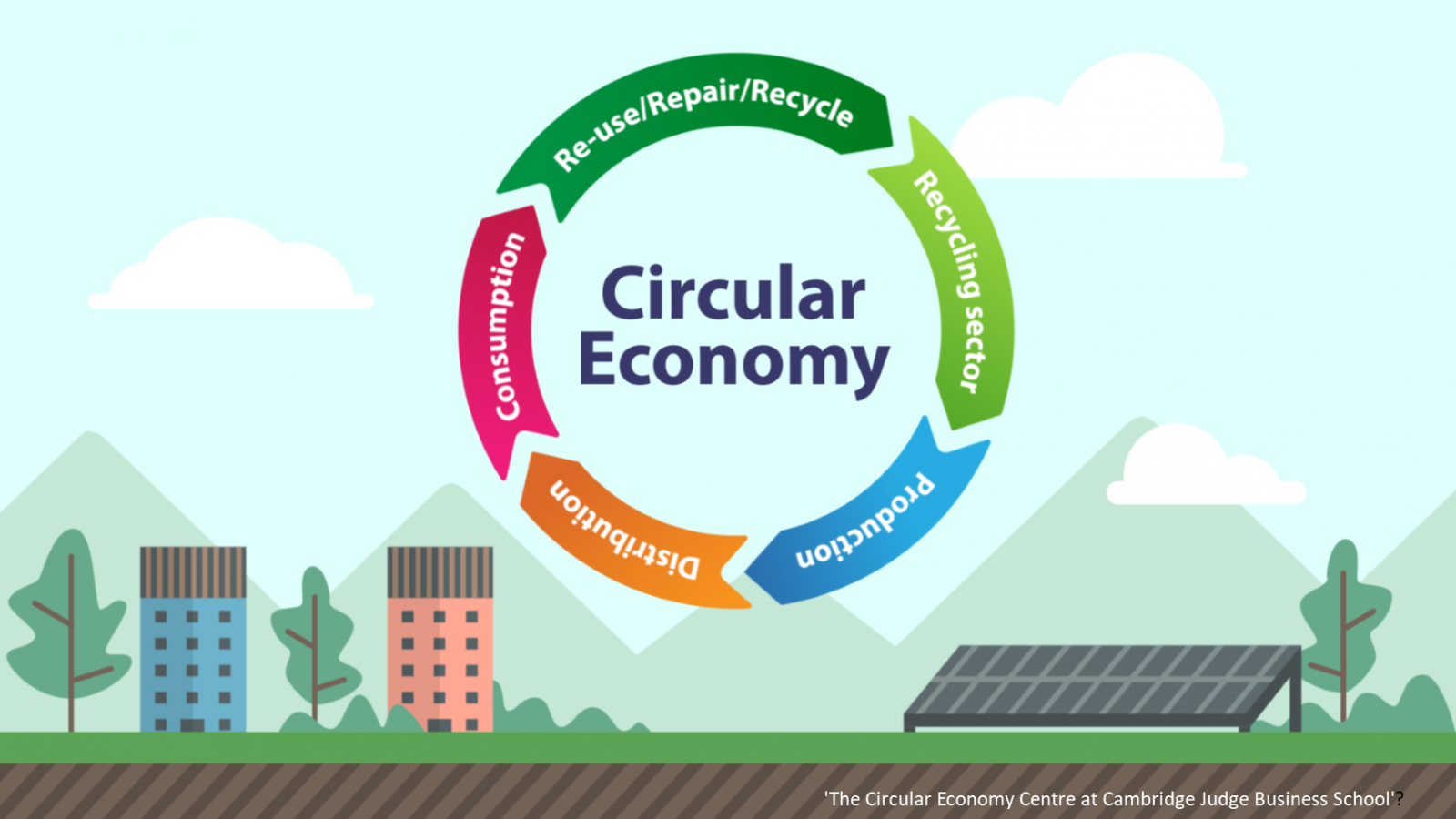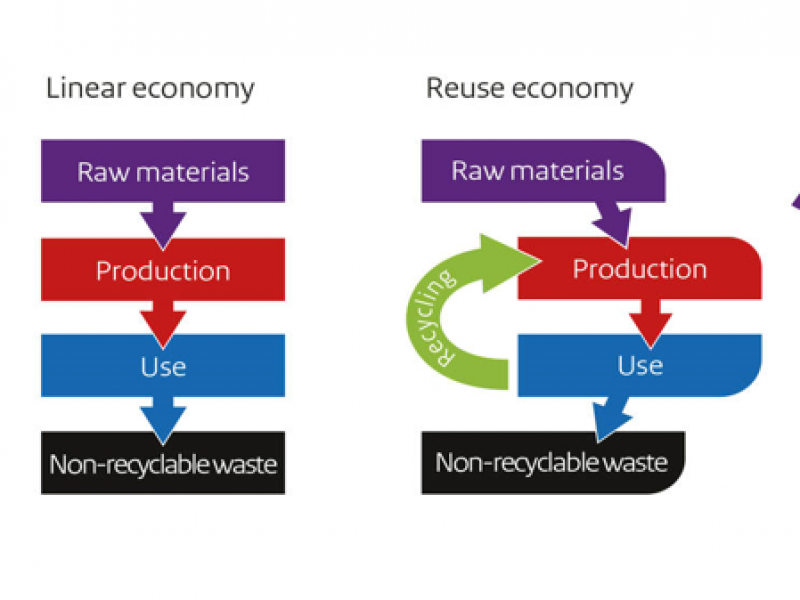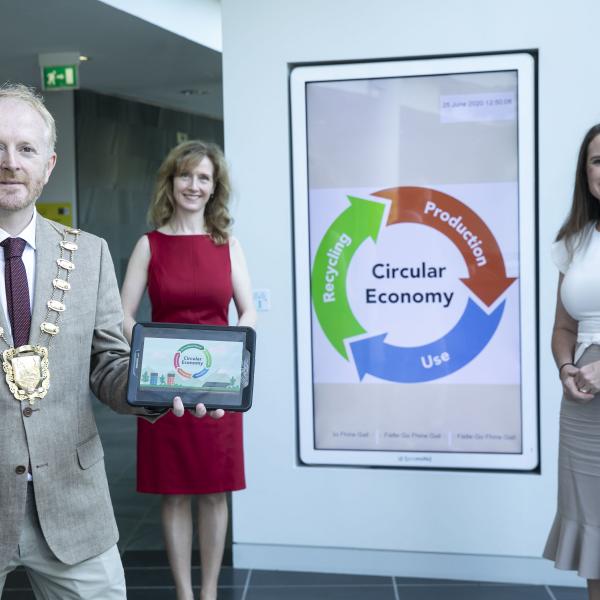Green Enterprise: Innovation for a Circular Economy

The Environmental Protection Agency (EPA) has launched a €600,000 funding opportunity for Irish innovators to develop and demonstrate business-ready solutions for the circular economy. Circular businesses reduce costs by reusing & recycling materials already in use; and build vibrant, new businesses.
The EPA’s Green Enterprise: Innovation for a Circular Economy programme supports organisations to develop and demonstrate new circular economy approaches and Fingal County Council is seeking expressions of interest by 17 July 2020 from businesses and innovators who would like to partner with the Council on eligible projects to advance the circular economy in Fingal.
Applications are invited in the following areas:
- Food;
- Construction & Demolition;
- Plastics;
- Resources & raw materials (electrical and electronic equipment, textiles and furniture).
These are key priorities nationally which require innovative thinking and solutions and are also priorities of the EU’s Circular Economy Action Plan.
Click here to view the Green Enterprise call documents
To apply for funding, you must be registered on SmartSimple, the EPA's online application and grant management system. User guidance documents and video tutorials are available from the EPA website, and the SmartSimple portal.
From a Linear to a Circular Economy
The proper management of resources is crucial to securing a better, more sustainable Ireland for future generations and is central to the National Climate Action Plan (CAP) as 60% of greenhouse gas emissions come from the use of materials. https://www.dccae.gov.ie/en-ie/climate-action/publications/Documents/16/Climate_Action_Plan_2019.pdf
We need to radically change the way we think about waste at every level; the producer, the processor, the retailer and the consumer and to recognise that the accrued gains in reducing material use and replacing virgin with recycled material will be credited back up the supply chain.
The emergence of the COVID-19 coronavirus has also given us all a reminder of the limitations of our current economic model with its long and complex global supply chains. We want to explore the Circular Economy for ways to build our economy back up in a way which addresses the sensitive nature of supply chains and ensures that we can recover in a more local, sustainable manner. Reusability and the potential for remanufacturing offer opportunities for resilience (stock availability) and competitiveness.
An important area for circularity is in the food production sector, which is particularly strong in Fingal and exploring the potential for regenerative agriculture, promotion of effective agricultural supply chains and digitally enabled, optimised supply chains and peri-urban production. For example, in China community-supported agriculture, an innovative model connecting urban dwellers and their peri-urban organic food growers, has seen business growth and increased customer satisfaction during the COVID-19 lockdown.
The importance of the Circular Economy has been recognised internationally, as evidenced in the pledge 50 global leaders, including CEOs of major companies, have signed in June 2020. See https://www.ellenmacarthurfoundation.org/news/more-than-50-global-leaders-pledge-to-build-back-better-with-the-circular-economy.
The signatories including CEOs, policy makers, philanthropists and other influential individuals, are leading the way in supporting the elimination of unnecessary plastic, designing and innovating towards smarter business models and circulating what can be reused. The pledge makes commitments in relation to fashion - introducing re-purposing/redesign and ultimately ending the throw-away culture – and food which will require a product and supply chain redesign in order to regenerate nature, eliminate waste and connect local producers and consumers where appropriate. The signatories commit to supporting companies to transition to circular business models, directing and investing capital in circular solutions in all areas of economic activity and services.
The circular economy offers a solution …. By designing out waste, keeping products and materials in use, and regenerating natural systems, it creates vital opportunities for economic growth that also restore the environment, create jobs, and benefit society.
MORE INFORMATION
If you have any queries on the Green Enterprise Call, please contact the Economic, Enterprise and Tourism Development at [email protected]
Remember, Fingal County Council is seeking expressions of interest by Friday, 17 July ,2020.

